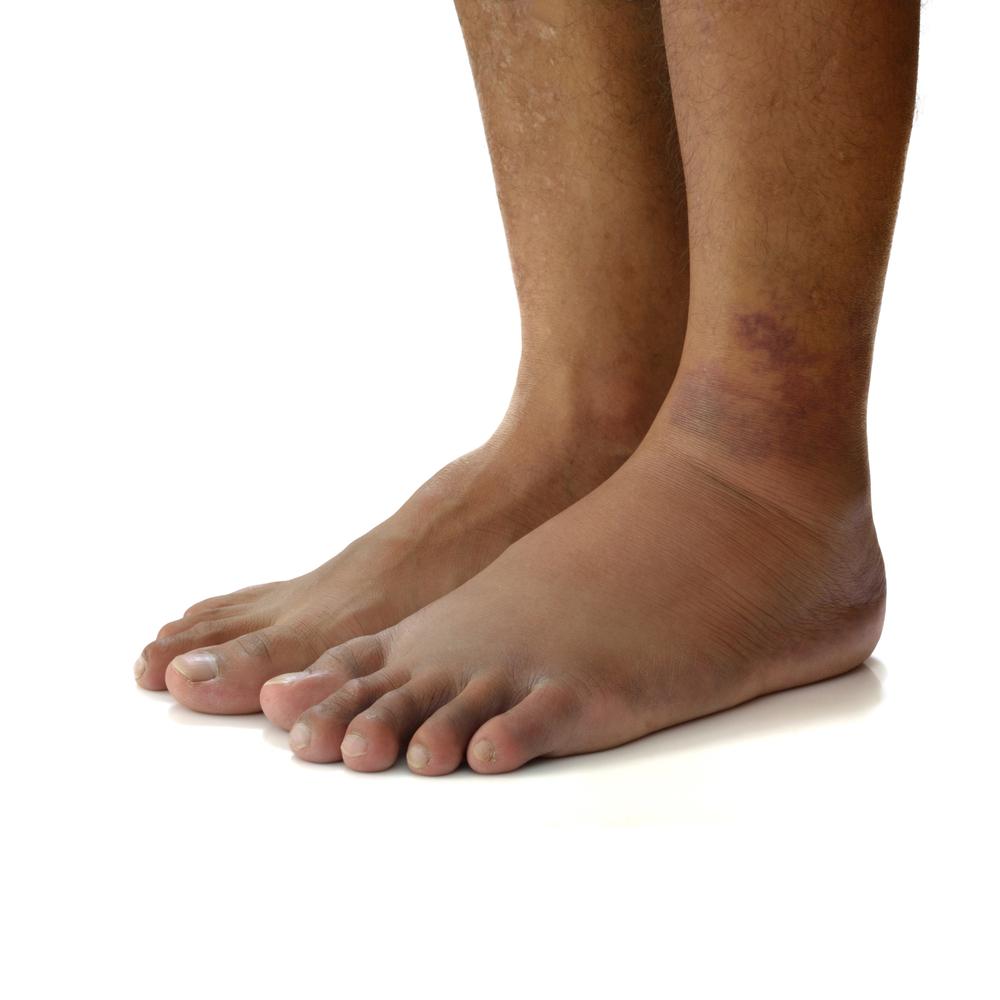
Reasons Why Your Feet Are Swollen
Swelling of the feet, legs, and ankles refers to an accumulation of fluid in the lowest body parts. The swelling also called peripheral edema usually occurs at the feet because gravity drains the fluid to the lowest areas of the body. The buildup is not painful unless it occurs due to an injury. Swelling of the ankles, leg, and feet is most common in elderly adults. It might occur on one or both sides of the foot. It can also affect one or more parts.
Swelling of the feet does not pose much health risk but it is essential to consult a doctor as they could be a sign of a serious health issue that needs immediate treatment. One or a combination of these factors can cause swelling on the feet.
Edema
Edema occurs when the body retains too much water. Too much water in the body makes the feet to be puffy. It sometimes occurs after standing for a long time or after a long air flight. When muscles stay long without activity, they are unable to pump body fluids back towards the heart. The water has retained the legs and feet thereby causing swelling. Most of the time, swelling caused by edema clears without medication but it is still essential to get check up as it could be a sign of health problems such as heart failure, low protein levels, liver or kidney disease.
Hormonal changes
The feet of some women swell around their monthly periods or during pregnancy because of changes in hormonal levels. The levels of progesterone or estrogen fluctuate at these times reducing circulation in the legs thus causing the swelling.
The body of a pregnant woman body retains more water than it uses thus ends up causing swelling on the feet. The feet are more swollen in the evening or after a woman stands for a long time. It can be uncomfortable but not a sign of ill health.
Preeclampsia
Preeclampsia is a condition that causes high blood pressure among pregnant women. It increases blood pressure which can result in reduced circulation and swell in the feet and legs. It is natural for many expectant women to have swollen feet but it could be a sign of high blood pressure if it comes with nausea, headache, belly pain or trouble breathing. It begins around the 20th week of pregnancy and it increases the risk of high blood pressure. It is important to inform a doctor about these symptoms for a diagnosis. If untreated, preeclampsia can cause damage to the kidneys or liver.
Injury
Tripping or a misstep can cause the feet to swell even when the bone does not break. Spraining can tear the flexible tissue that connects the bones around the ankle and swells as more blood rushes to the point in an attempt to heal it. It is important to get treatment if the leg is hurting, swells a lot or cannot take the weight.
Medications
Some types of medicine increase thickness of blood thus reducing circulation and causing swelling in the feet, ankle, and legs.
See Best Nursing Writing Company reviews by our customers and writers. We are among the best rated company in providing nursing services.
It is essential to inform a doctor about feet swelling induced by medication for a recommendation on the alternative treatment.
Blood clot
A blood clot forms when a clump of blood in solid static state form in a leg vein. It will impair blood flow leading to discomfort and swelling.
Lymphedema
Lymphedema occurs due a damage or removal of a lymph node which is a small gland that is part of the immune system usually during cancer treatment. Removal or damage of a lymph node reduces the amount of fluid that the body rids thus causing swelling in the feet, legs, and arms.
Kidney disease
The role of a kidney is to filter waste from the blood. If a disease prevents optimal kidney function, it will leave too much sodium (salt) in the body and it will hold on the excess water. The feet and ankles swell as gravity pulls most of the excess fluid downwards.
When the feet swell, it is essential to determine the cause and seek appropriate treatment before it gets worse.

